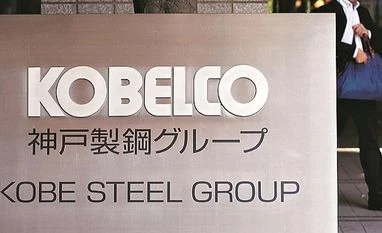These days, Japan Inc is turning heads for a less exalted reason — a string of scandals that has destroyed shareholder value, enraged consumers and incurred the wrath of regulators.
Kobe Steel raised fresh concern about the integrity of Japanese manufacturers after disclosing on Sunday that it falsified strength and durability data on aluminum used in products ranging from cars built by Toyota Motor Corp to bullet trains made by Hitachi. The metal maker’s chief executive officer, Hiroya Kawasaki, is now leading a committee to probe quality issues.
Last week, Nissan Motor Co recalled more than a million vehicles because unauthorised inspectors signed off on quality checks. Takata Corp, the bankrupt Japanese maker of airbags linked to at least 17 deaths worldwide, expanded the biggest recall in automotive history after regulators concluded in July that its inflators could still explode in a crash even after new safety measures.
“These problems are coming to light pretty regularly,” said Keita Kubota, an investment manager at Aberdeen Investment Management KK in Tokyo. “It’s not fair to single out Japan, but investors need to be looking very carefully to make sure they’re putting their money into companies that take governance and compliance seriously.”
Since Prime Minister Shinzo Abe took over in 2012, there has been a concerted push to improve corporate governance, but the focus has been mainly on improving profitability, rather than policing bad behaviour. Share buybacks and dividends have surged.
So have the number of scandals. In the five years after a $1.7-billion accounting fraud was uncovered at medical equipment maker Olympus Corp, the number of improper accounting cases unearthed each year at publicly traded Japanese companies has nearly doubled.
The trend hit a record high of 58 cases in the 12 months through March 2016, according to Tokyo Shoko Research, which provides data on corporate bankruptcies.
Japan’s regulators imposed an unprecedented 7.4 billion yen ($66 million) fine against Toshiba Corp in December 2015 after finding that the giant manufacturer of nuclear power plants and semiconductors misled investors by filing false financial statements. The scandal claimed the jobs of three presidents, led to record losses and prompted the company to cut staff and sell off businesses.
The fact that more cases of fraud are coming to light might actually be a sign that corporate Japan is doing better at ferreting out abuses, according to Jesper Koll, chief executive of WisdomTree Japan, an investment firm in Tokyo.
“I find it hard to believe that the system is falling apart any more than it always has,” he said. © Bloomberg
To read the full story, Subscribe Now at just Rs 249 a month
Already a subscriber? Log in
Subscribe To BS Premium
₹249
Renews automatically
₹1699₹1999
Opt for auto renewal and save Rs. 300 Renews automatically
₹1999
What you get on BS Premium?
-
Unlock 30+ premium stories daily hand-picked by our editors, across devices on browser and app.
-
Pick your 5 favourite companies, get a daily email with all news updates on them.
Full access to our intuitive epaper - clip, save, share articles from any device; newspaper archives from 2006.
Preferential invites to Business Standard events.
Curated newsletters on markets, personal finance, policy & politics, start-ups, technology, and more.
Need More Information - write to us at assist@bsmail.in
)